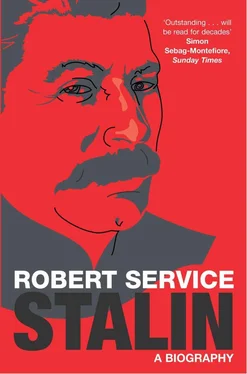Marxism had been growing in influence among dissenting intellectuals and workers from the mid-1880s. They were inspired by ideas developed by the political émigré Georgi Plekhanov, who suggested that capitalism was developing fast across the empire and that the working class was the group in society best able to bring about an end to the Romanov monarchy and to initiate changes which eventually would lead to the achievement of socialism. Other socialists stuck to an earlier Russian tradition which Plekhanov had abandoned. These were revolutionaries who looked mainly to the peasantry to bring down the oppressive order of state and society. Such revolutionaries, guided by Viktor Chernov, were to form the Party of Socialist-Revolutionaries in 1901. Chernov shared ideas with Marxists but claimed that the social structure of the Russian Empire had not yet changed as much as Plekhanov asserted; he also saw the industrial workers as being little different, socially and culturally, from the peasantry. Also active in the Russian Empire were liberal political groups. Initially they were headed by Pëtr Struve, who had started public life as a Marxist. In 1905 they were to establish the Constitutional-Democratic Party. The Constitutional-Democrats (or Kadets) advocated liberal democracy and capitalism as the solution to the problems of the country.
The Marxists, though, dominated public debate in Georgia. They triumphed over the liberals and conservatives who already existed there. Socialist-Revolutionaries acquired no following in the south Caucasus. The main rivals to Marxism were the Social-Federalists, who were Georgian socialists with a strongly nationalist orientation which demanded the transformation of the Russian Empire into a federal state with Georgia as one of its constituent subjects. But the Social-Federalists failed to win over the majority of dissenting opinion. Noe Zhordania’s was the dominant voice among Georgia’s Marxists. He had a strong personality, moral force and flair with the pen. 17Marxism in Georgia was largely the product of his ideas and activity. Zhordania, too, understood that independence for the Georgians would expose them to invasion by the Ottoman Empire. He was not invulnerable to challenge to his authority. Pilipe Makharadze, Mikha Tskhakaya and other Marxists thought him too soft on Georgian liberals. But Zhordania saw Georgia’s Marxists as the leaders of a national movement against the political and economic system of tsarism. To this end he co-operated with all trends of anti-Romanov opinion in Georgia. It was this that had induced the liberal Giorgi Tsereteli to transfer possession of Kvali to him.
Dzhughashvili’s friend Lado Ketskhoveli agreed with Zhordania’s critics and was keen to counteract the trend by practical action. Ketskhoveli argued for the establishment of a clandestine newspaper. Although Kvali had its uses, it could not propagate a full revolutionary message for fear of the Imperial censorship. 18Ketskhoveli and Dzhughashvili generally advocated tighter forms of ‘underground’ organisation than Zhordania approved. Whereas Zhordania hoped to broaden the opportunity for ordinary workers to join the Marxists and contribute actively to party life, his younger critics thought it risky to let authority slip from the hands of experienced organisers such as themselves. This dispute affected the whole Russian Social-Democratic Workers’ Party at the turn of the century. The beginnings of the split which occurred in 1903 between Bolsheviks and Mensheviks were already detectable. Agreement existed that the techniques of clandestine party activity had to be respected. Beyond this point there were the symptoms of a split which became a gaping wound in Georgian Marxism in the years ahead.
Lado Ketskhoveli shrugged off Zhordania’s control by setting up an illegal Marxist newspaper, Brdzola (‘Struggle’), in Baku on the Caspian coast. Zhordania had obstructed any such venture in Georgia for fear of jeopardising the publication of Kvali . For Ketskhoveli, Zhordania’s reaction was a further indication that the Tbilisi Marxist leadership was making too many compromises. Baku’s population included Russians, Armenians and Georgians as well as an Azeri majority. He quickly found a press in Baku 19and by forging documents purporting to come from the governor of Yelizavetgrad he was able to get the owners to go ahead with the printing. 20Cunning and strong-minded, he set up the kind of Georgian-language newspaper he wanted. Copies were sent to Marxist groups throughout the Caucasus. Later in life Dzhughashvili pretended that he had co-founded Brdzola . In reality it was exclusively Ketskhoveli’s work. Dzhughashvili also overstated the degree of antagonism between the two of them and Zhordania. Tensions certainly existed and were increasing; but co-operation persisted, and Ketskhoveli eventually turned to Zhordania to write the editorial for one of Brdzola ’s issues. 21
Meanwhile Dzhughashvili was making a nuisance of himself in the Georgian capital. The Tiflis Committee of the Russian Social-Democratic Workers’ Party was riddled with political and personal disputes. (Georgia’s Marxists, never aspiring to secession from the Russian Empire, referred to their capital by the Russian name Tiflis.) But Dzhughashvili made everything worse. One memoir, without directly naming him, identifies a ‘young, muddled comrade from the intelligentsia, “energetic” in all matters’. According to this account, the individual, ‘invoking conspiratorial considerations as well as the unpreparedness and lack of [political] consciousness among workers, came out against admitting workers to the committee’. 22The Marxists of Tbilisi took this to be an unpleasant opinion unpleasantly delivered — and the context makes it virtually certain that Dzhughashvili was the comrade in question. Another contemporary, Grigol Uratadze, wrote more directly that Dzhughashvili was arraigned before his comrades and found guilty as a ‘slanderer’. 23
In November 1901, after being withdrawn from propaganda work in Tbilisi by the City Committee, Dzhughashvili left for Batumi on the Black Sea coast seeking to spread his ideas in a more receptive milieu. But many Marxists in Batumi did not take to him. Dzhughashvili kept ranting about the sins of commission and omission of the Tiflis Committee. This was bad enough. But the comrades in Batumi could not stand his ‘personal capriciousness and his tendency to despotic behaviour’. 24What is notable here is that objections were made less to policy than to attitude and comportment. Nastiness to acquaintances had been his hallmark since he had been a youngster. Ambition too had been a characteristic. But he wanted to rise to revolutionary eminence on his own terms; and whenever others baulked him, he told them they were wrong and stupid. He was a clever young man who thought he had the answers to the difficulties experienced by Marxist propagandists in the south Caucasus. Stressing the need for clandestine activity, illegal propaganda and control over the workers, Dzhughashvili was a Bolshevik in waiting.
He was not ineffective in Batumi. He worked with fellow Marxists and pipeline and port workers to stir up revolt against the employers. Contact was made with likely recruits to the party. The Rothschild and Mantashëv enterprises were his favourite spots. At the same time he kept in contact with Ketskhoveli hundreds of miles east in Baku. Strikes broke out in Batumi and Dzhughashvili and his group were involved. He was doing what his ideology and policies induced him to do. He was involved, too, in the organisation of a protest demonstration by workers on 8 March 1902. They were demanding the release of strike leaders imprisoned a few days earlier. The demonstration had fatal consequences. The town authorities panicked at the sight of six thousand angry marching workers and troops fired on them. Fifteen demonstrators were killed. A massive Okhrana investigation followed. There were hundreds of arrests. Police spies had penetrated the Batumi Marxist organisation and it was only a matter of time before Dzhughashvili’s whereabouts were discovered. He was taken into custody on 5 April and detained in Batumi Prison.
Читать дальше












